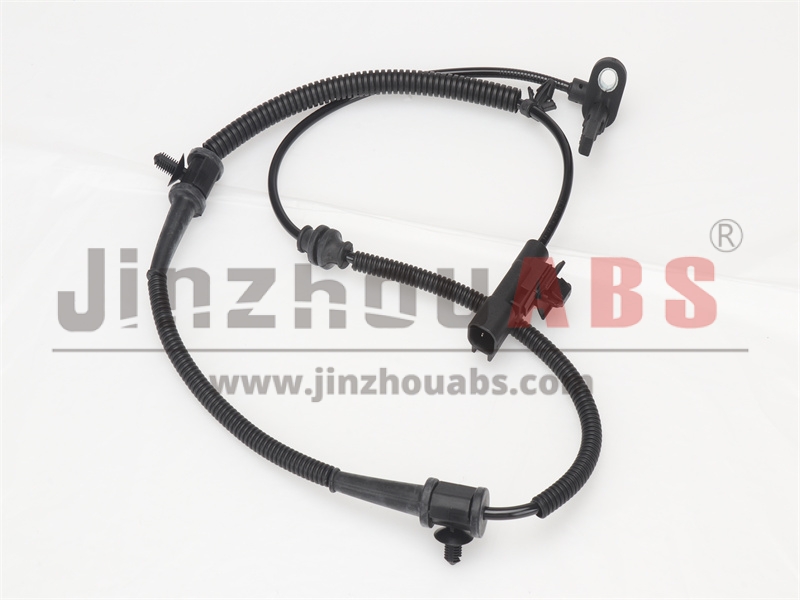Honda Fit ABS Sensor Failure & Coolant Temperature Sensor Failure: How to Fix Them
The Honda Fit (also known as the Honda Jazz in some markets) is a popular compact car, appreciated for its reliability and efficient performance. However, like any vehicle, Honda Fit owners may occasionally face issues with certain components, including the ABS (Anti-lock Braking System) sensor and coolant temperature sensor. Below, we will explore how to troubleshoot and resolve these common problems.
ABS Sensor Failure
The ABS (Anti-lock Braking System) is a crucial safety feature designed to prevent the wheels from locking up during hard braking. If the ABS sensor fails, it can compromise the vehicle’s braking performance, especially in emergency situations. Here are a few ways to address ABS sensor failure:
Inspect the Sensor Wiring: Start by checking the sensor wiring for any visible damage, fraying, or loose connections. If any issues are found, the damaged parts should be repaired or replaced. A loose or broken wire can easily disrupt the functioning of the sensor.
Clean the Sensor: The ABS sensor is typically located near the wheel hub, where it can be exposed to dirt, mud, and debris. These particles can interfere with the sensor’s ability to detect wheel rotation accurately. Regularly cleaning the sensor can help prevent such issues and improve sensor performance.
Replace the Sensor: If the wiring and cleaning don’t resolve the issue, the sensor itself might be faulty. In this case, replacing the ABS sensor is necessary. Since replacing an ABS sensor requires specialized tools and knowledge, it is recommended to visit a professional auto repair shop for this repair.
Check the ABS Control Module: If the sensor replacement does not fix the problem, the issue could be with the ABS control module itself. The control module is the brain of the ABS system, and failure here may require professional diagnostic equipment to properly assess and replace the module.
Coolant Temperature Sensor Failure
The coolant temperature sensor plays an essential role in monitoring the engine’s temperature and ensuring it stays within safe operating limits. A malfunctioning coolant temperature sensor can cause the engine to overheat or prevent it from reaching optimal operating temperature, leading to engine damage. Here are the steps to troubleshoot and resolve a coolant temperature sensor failure:
Inspect the Sensor Wiring: Similar to the ABS sensor, it’s important to check the wiring of the coolant temperature sensor for any signs of wear or damage. Loose connections or frayed wires can prevent the sensor from relaying accurate temperature data to the engine control unit (ECU). Repair any damaged wiring as needed.
Replace the Sensor: If the wiring is intact and the sensor still fails to function, replacing the coolant temperature sensor is the next step. When replacing the sensor, it’s crucial to use a high-quality, compatible replacement part that matches the specifications of the vehicle. Follow the manufacturer’s installation instructions for best results.
Check the Coolant Level and Quality: Sometimes, engine overheating or insufficient cooling is related to low or contaminated coolant rather than a sensor issue. Ensure that the coolant level is correct and that the coolant is in good condition. If necessary, flush the cooling system and refill with fresh coolant to maintain optimal engine temperature regulation.
Examine the Thermostat: If the coolant temperature is consistently too high or low, the issue might not solely be with the sensor. A malfunctioning thermostat can restrict the flow of coolant and cause temperature regulation issues. If you suspect a thermostat problem, have it checked and replaced by a professional if needed.
Summary
Both ABS sensor failure and coolant temperature sensor issues are common problems that Honda Fit owners may encounter. These components are crucial for vehicle safety and engine performance, so it’s important to address any failures promptly. Although basic repairs like cleaning or inspecting wiring can be performed by some vehicle owners, replacing these sensors often requires specialized knowledge and equipment.
Therefore, it’s advisable to seek the help of a professional mechanic if you’re unsure about performing these repairs yourself. Regular vehicle maintenance, including sensor inspections and coolant checks, can help reduce the likelihood of such issues arising.
By addressing these faults early, you can ensure that your Honda Fit continues to deliver reliable performance and maintain the highest safety standards.



